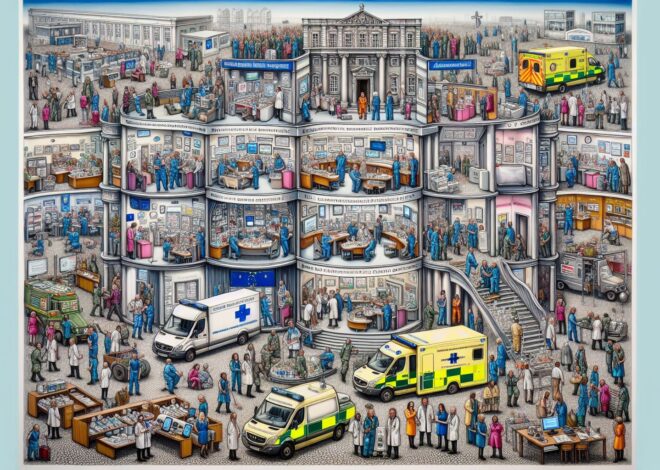
The Preparedness and Response of European Health Systems
The outbreak of the COVID-19 pandemic has put European health systems to the test. From the initial identification of the virus to the current vaccination efforts, health professionals, policymakers, and concerned citizens have had to come together to ensure the preparedness and response of European health systems. In this post, we will explore the challenges faced by European health systems, the actions taken to address them, and the lessons learned from the pandemic.
Challenges Faced by European Health Systems
European health systems were faced with numerous challenges when the COVID-19 pandemic hit. The sudden influx of patients put immense pressure on healthcare facilities, leading to overcrowded hospitals and overwhelmed medical staff. The lack of personal protective equipment (PPE) and testing supplies further exacerbated the situation, making it difficult to contain the spread of the virus.
Moreover, the pandemic highlighted the existing disparities in healthcare access across Europe. Vulnerable populations, such as the elderly and those with underlying health conditions, were disproportionately affected by COVID-19. Additionally, the economic impact of the pandemic led to job losses and financial strain for many individuals, further hindering their access to healthcare.
Actions Taken to Address the Challenges
In response to the challenges faced by European health systems, health professionals, policymakers, and concerned citizens came together to implement various strategies. These included ramping up testing and contact tracing efforts, increasing the production and distribution of PPE, and expanding healthcare capacity through temporary field hospitals and makeshift treatment centers.
Furthermore, European countries collaborated on a regional level to share resources and best practices in fighting the pandemic. The European Union launched the EU Vaccine Strategy to ensure that all member states have access to COVID-19 vaccines, regardless of their size or wealth. This coordinated approach has helped streamline the vaccination process and ensure equitable distribution of vaccines across Europe.
Lessons Learned from the Pandemic
The COVID-19 pandemic has highlighted the importance of preparedness and response in healthcare systems. European health systems have learned valuable lessons from the pandemic, including the need for robust public health infrastructure, effective communication strategies, and resilient supply chains for medical supplies.
Moving forward, health professionals, policymakers, and concerned citizens must continue to work together to strengthen European health systems. This includes investing in healthcare workforce training, improving data sharing and surveillance systems, and addressing social determinants of health to reduce disparities in healthcare access.
In conclusion, the preparedness and response of European health systems in the face of the COVID-19 pandemic have been a testament to the resilience and innovation of healthcare stakeholders. By learning from the challenges faced and implementing strategic actions, European health systems can be better equipped to handle future health crises. As we continue to navigate the uncertainties of the pandemic, collaboration and solidarity will be key in building a healthier and more resilient Europe.



